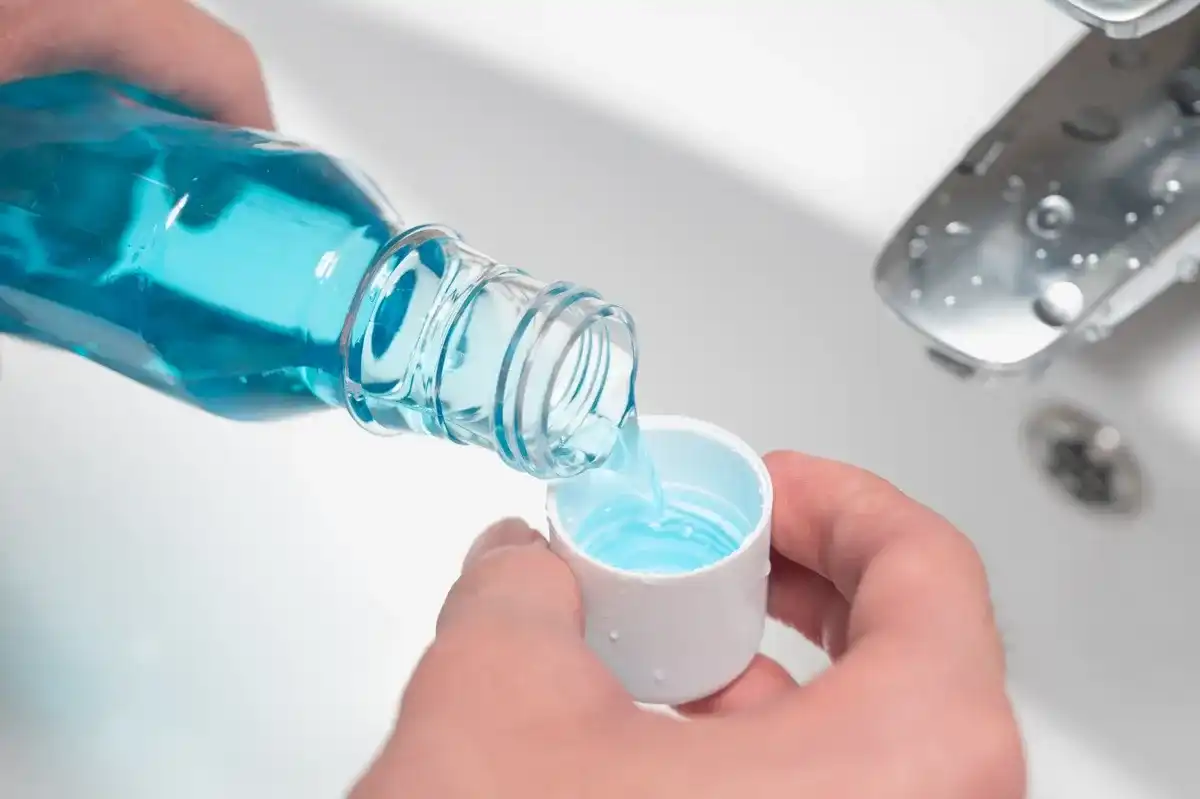How Acidic Is Your Mouthwash? What Are Alkaline Mouthwashes


Most of us probably assume that mouthwash is safe to use whenever, wherever. But sometimes, the pH level of a mouthwash can actually be acidic enough that it’s considered potentially erosive to tooth enamel. Why would a mouthwash pH be that low? Which mouthwash is bad for teeth? And how do you know if your mouth rinse is acidic or not?
Whenever we measure pH levels, we use a scale of 0-14. 7 is completely neutral, with anything below that being acidic and above that being basic. The more acidic the pH level is, the more erosive it is to tooth structures. Anything that’s 5.5 or below is considered damaging to teeth.
Why Does Mouthwash pH Matter?
Some mouthwash pH levels are more acidic than others. If you were to rinse with a low pH mouthwash over and over, day after day, you could potentially contribute to tooth enamel erosion or leaky dental work.
Even if you think, “well my mouthwash company wouldn’t do that,” you might be surprised. There are plenty of popular and reputable brands out there that have mouthwash pH levels in the 3’s and 4’s (including some that are known for being “holistic” or “natural.”)
Before you start to worry, even some bottled water has “acidic” pH levels. It’s when the levels get lower and lower and the frequency of use line up to be damaging to your teeth rather than helpful.
Avoid Acidic Mouthwashes
Do you need to completely give up using an acidic pH mouthwash? Not necessarily. But you might not want to use it 2-3 times a day every day either. Instead, you could use it once or twice a week or alternate it with a basic or neutral mouthwash. The best bet is to follow the directions on the label and use it as directed because it’s probably written out that way for a reason.
Why on earth would a mouthwash be acidic, you ask?! It actually has to do with the way the fluoride compounds are stabilized inside of the mouth rinse. In fact, the slightly lower pH can actually help fluoride and hydroxyapatite crystals make their way into the tooth enamel more effectively. That way the tooth absorbs those minerals better, making the tooth stronger. So there is some “good” that comes from a slightly acidic mouthwash pH in some cases (as long as you use it as directed.)
List of Mouthwash pH Levels
Now that we know some mouthwash brands have a low pH and that a slightly acidic rinse can help with mineral absorption in teeth, how can you tell which ones have a low pH?
According to Integrative Oral Medicine, these are some of the most common mouthwash pH levels for brands currently out there on the market.
What Is An Alkaline Mouthwash?
Alkaline mouthwash is one that winds up being basic instead of acidic. Scientifically, it has to do with the hydrogen ions that are involved in the solution. They are not necessarily acidic or basic. Alkaline substances have fewer hydrogen ions than water, so that when you dissolve them, they become basic.
Why does any of that matter? Because alkaline ions help neutralize acids once they dissolve. All alkaline solutions are inherently basic, but not all basic solutions qualify as alkaline.
If you enjoy using mouthwash and you’re someone who is cavity-prone, many dentists recommend avoiding acidic mouthwashes, and opting for alkaline mouthwashes instead.
The pH Scale

Some Mouthwashes Are So Acidic And Can Cause Cavities
Are there certain mouthwashes out there that have a pH level lower than 5.5, making them potentially harmful to your tooth enamel? Yes. In fact, some of the most popular brands fall in the 3’s and 4’s when it comes to acidity.
Even though oral rinse doesn’t necessarily cause cavities, it could be so acidic that it contributes to tooth sensitivity or enamel erosion if it’s used too frequently.
Avoiding Acidic Mouthwashes
Anything below a pH level of 7 is considered acidic. And a lot of mouthwash pH levels fall into that category because it helps with the absorption of fluoride and hydroxyapatite crystals in the teeth. On the other hand, an alkaline mouth rinse turns basic once it’s diluted because of the hydrogen ions (like when it gets mixed with your saliva.) If you have sensitive teeth or significant amounts of enamel erosion, make sure you’re not using a mouthwash with too acidic of pH levels. When in doubt, ask your dentist or hygienist for their professional recommendation!

Make your inbox smile!
Subscribe






